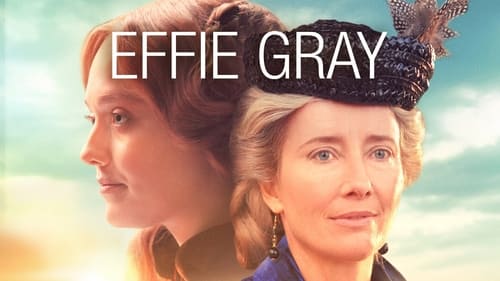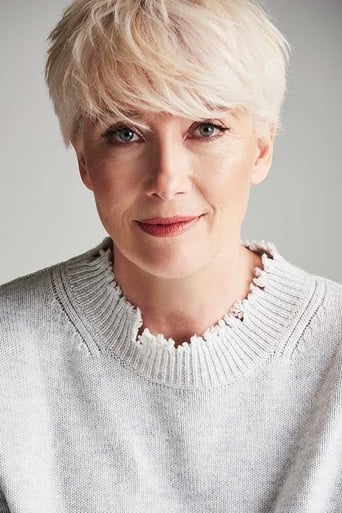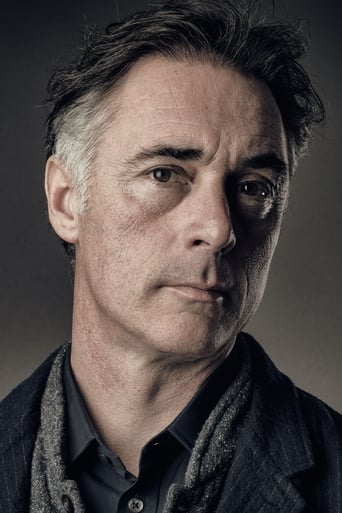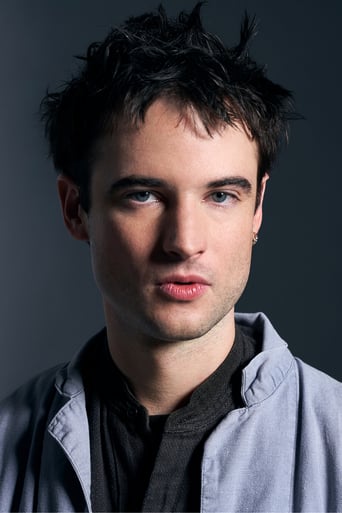Clevercell
Very disappointing...
Solemplex
To me, this movie is perfection.
Softwing
Most undeservingly overhyped movie of all time??
Sexyloutak
Absolutely the worst movie.
donflemna
A number of us tried to watch this movie together. None of us heard a word of the prologue because the music completely overwhelmed the spoken words. It was not quite as bad in the movie proper, but loud enough to interfere with our enjoyment of what would otherwise have been a very enjoyable movie with a fine script,great acting, etc. If the music had been toned down we would have given it an 8.
trimmerb1234
Ruskin was a dominating and influential public figure. Driven, dogmatic, intensely serious, argumentative and over time self-contradictory. His great two volume "Stones of Venice" were essential for the bookshelves of Victorians wishing to be seen as cultivated and engaged, with a deep interest in both architectural and religious questions. Ruskin,father of the Gothic Revival,wrote the "Stones of Venice" as a very elaborate and extensive - and tenuous - justification for Gothic as the only true Protestant architectural style comparing the historic governance of Venice with that of England. Ruskins obsessive advocacy spawned the hundreds of churches and dozen of town halls built in the Gothic style in Victorian England. It is possible I think to form something of a picture of Ruskin's character from his writings - and even for high Victorian England it does not bode well for any future marriage partner. Ruskin was much photographed so his appearance is well known. His demeanour could be guessed at. Apart from his voice one might form a fairly detailed picture of him. So close was Greg Wise to my picture of Ruskin, particularly his demeanour that it was quite a startling experience. Effie though was a perfectly normal young woman. Her lover, Millais too was a very normal man. She had the misfortune to marry a very gifted but tightly buttoned up - in a number of senses - man.It does however mean that the interest - because of its oddity - was Ruskin - and his parents, immensely proud their odd offspring. Top portrayals of the parents and notably too, Derek Jacobi as Effie's solicitor. Emma Thompson's screenplay has such fidelity to the manners and mores of the period, the difficulties of speaking about matters then of great delicacy. It is an antidote to the unspeakable screenplay for "Victoria". The normality of Effie and Millais - and the relatively colourless portrayals - made these parts of the film drag. However I only caught the last quarter of the film or less so look forward to seeing it on DVD asap A 7.5A footnote is a recent book which questions Ruskin's impotence as the cause of his problem with Effie (the writer suggests it was money) but as it was Ruskin himself who wrote (to his solicitors) as an uncomfortable admission that the "circumstances" of Effie's body were not such as to inspire (his) passion - it is difficult not to believe this as anything other than the real cause. Nobody knows exactly what he meant but seems decisive.
Angus T. Cat
I was looking forward to seeing Effie Gray. I knew the story of Effie's marriage to John Ruskin from the TV series Desperate Romantics.I was very disappointed by the movie. While Desperate Romantics played the story for laughs, with a comic air, Effie Gray told the story dramatically. Or tried to, rather.The screenplay only told part of the tale of how Effie married John Ruskin but their marriage was unconsummated. No one knows exactly why, but it seems to be because of Ruskin's disgust with "her person". So perhaps the old story that Ruskin had never seen a naked woman and thought they were smooth like statues, and was repulsed to find on their wedding night that Effie had public hair, may have a grain of truth in it. The movie shows Effie and John finally getting away from his oppressive parents and living in Venice. However, Ruskin makes it clear that he is in Italy to work and leaves his wife to find her own amusement with Italian officers. Effie resists being seduced by one officer and realizes there's something she isn't getting in her marriage. However, the pace of the story moves slowly..... very slowly....I kept saying to my husband, when are they getting to the good bits? Finally Ruskin, Effie, and the artist Millais, leave for Scotland for Millais, to paint Ruskin's portrait. At last they were they getting to the dramatic bits when Millais and Effie fall in love. It was slow.... very slow... lots of scenes of rain and rocks and waterfalls and Ruskin making remarks that turn off Millais. The Ruskin in this movie is so cold and callus there's nothing sympathetic about him. Millais though is Mr Nice Guy without much depth to his character. And that's about it. Effie goes to see her friend (played by Emma Thompson) who discreetly arranges a lawyer for Effie, Effie invites her younger sister to visit her in London, Effie leaves the house with her sister, saying they are going to visit their mother in Scotland, and Effie serves Ruskin with annulment papers. The end. Where was the drama of the annulment? In this movie there is only a brief scene where Ruskin and his parents shut the door on the lawyer after the papers are given to him. There's no mention of the struggles Effie had to get the annulment through the courts, no mention of how she and Millais married a year after the annulment was granted, and no mention of how Effie was then not permitted to attend any occasion with Queen Victoria, as a woman who had been previously married could not be allowed in the presence of the Queen. This movie was a missed opportunity that took a gripping and fascinating story and turned the major characters one dimensional. Ruskin is a fruitcake, Millais Mr Nice Guy and Effie is an Innocent Victim. Shame- with a better screenplay and tighter direction this could have been a revealing drama about Victorian England behind closed doors. Too bad the script didn't allow any real drama to develop, and like Ruskin shied away from nakedness (There is a scene with Effie spying Millais taking a bath in a lake. Nice to have some full male nudity for the ladies. Alas, he is seen from the back and from a distance.) There's no risk of showing characters' raw and stripped emotions. There's no schmutz here- unlike in Desperate Romantics, which, with all its playing the historical facts with a light touch, led the audience to really care for Effie, Millais, and art in the nineteenth century.
BKTrayner
Great Masterpiece Theatre costumes, characters, and setting, but the whole this is a slow motion bore.It's obvious from almost the beginning that the domineering parents don't like Effie. Nothing new about this plot -- been there and done that. Then we learn that something is clearly wrong with Ruskin, the mama's boy, who won't have sex with his wife.This story line goes on for an hour or so, and then we are introduced to a painter who captures Effie's heart -- now it's another version of the Forsyte Saga -- but we don't actually see any love scene.Then Effie finally goes to the lawyer and finds out she can get an annulment, and the movie essentially ends with the lawyer serving the divorce papers.We looked this up in Wikipedia. The story as presented in the movie is essentially true and accurate, but the "real" story goes on to a public scandal over this divorce with the re-marriage to the painter.The summary on IMDb indicates this will be about this "scandalous" love triangle. We learn for the first hour about two sides of the triangle, and we meet the third side in the second hour, but nothing about the scandal. This could have been a great movie with lawyers fighting in court, newspapers chasing Ruskin, etc. Instead, Emman Thompson simply wrote a screenplay that strips this historic episode of any dramatic interest.In the small art theater where we saw this, my wife and I were the only ones in the audience. The projectionist was just about ready to lock the door and go home. After see this move, we understand why.






